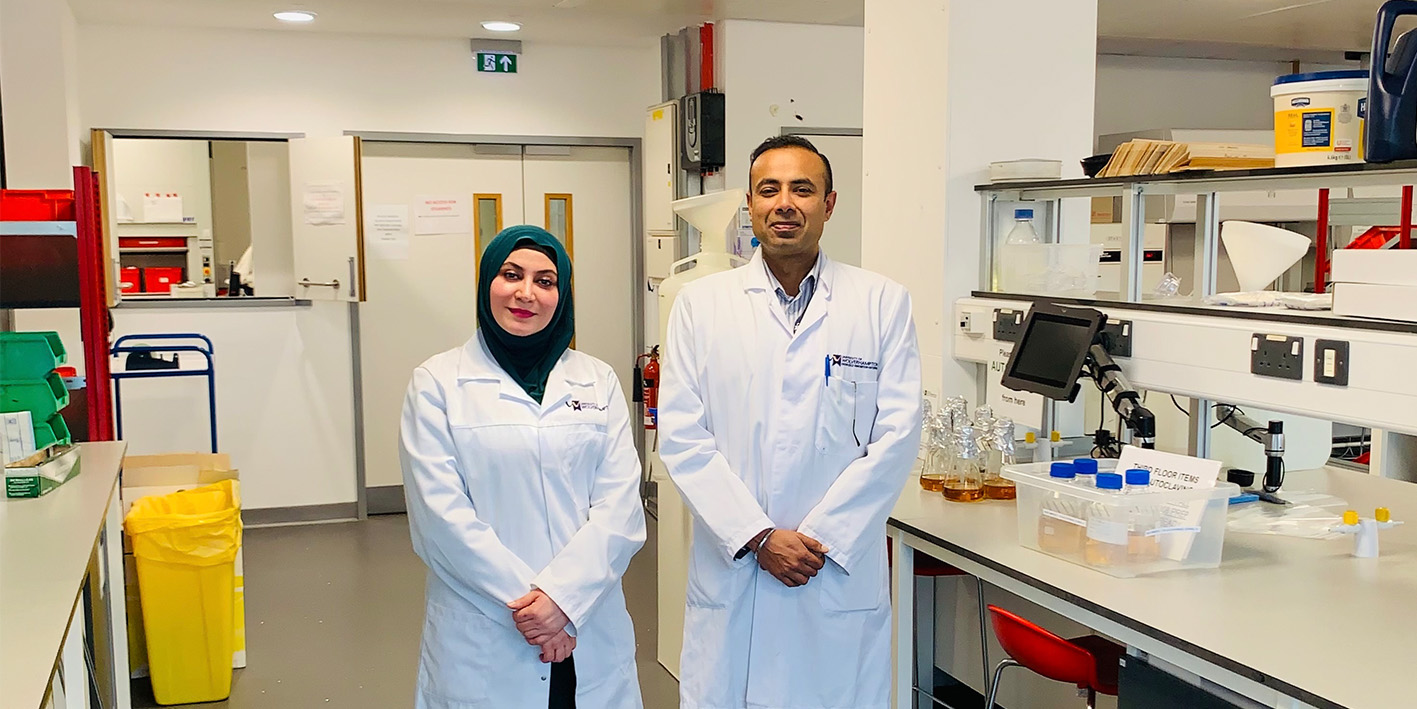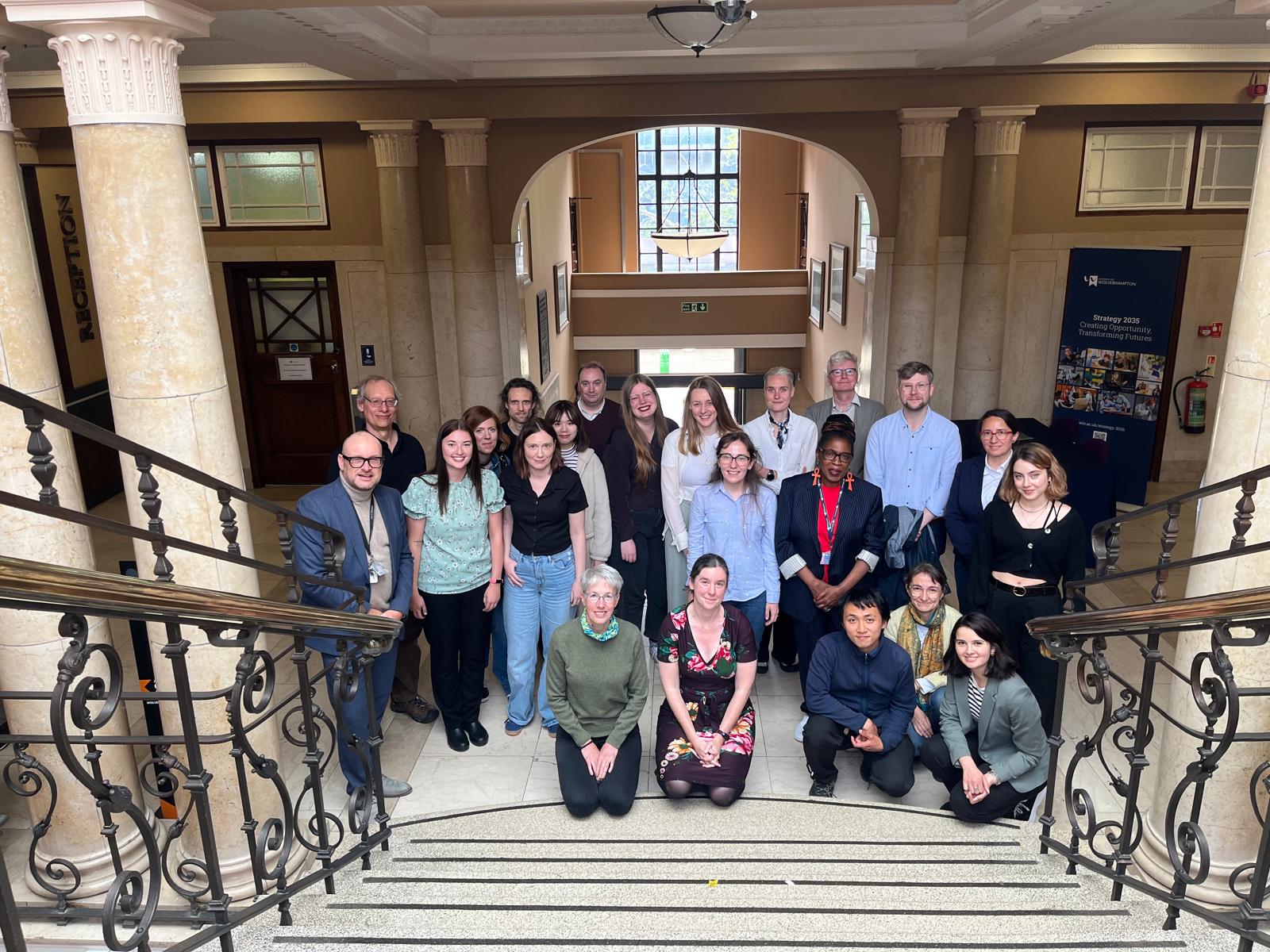
Student develops biodegradable dressing to help transform wound care

A Master’s student from the University of Wolverhampton has developed a ground-breaking biodegradable wound dressing which could help transform wound care.
Student Khabat Jamel has created innovative hydrogels, as part of her research project, combining the natural healing properties of thyme and ginger with the potent antimicrobial action of silver nanoparticles, offering a sustainable and effective alternative for wound care.
Khabat manufactured the hydrogel under the supervision of Dr Abhishek Gupta, Senior Lecturer in the School of Pharmacy at the University and an expert in advanced wound dressings.
Recently, Dr Gupta won second prize at the Santander X UK Awards 2024 after pitching an idea aimed to help revolutionise healthcare through innovative biomedical solutions. Dr Gupta has now progressed to the Santander X Global Awards Finals after winning in the Semi-finals.
Dr Gupta said: “Wound healing is a complex sequence of cellular and biochemical processes that, when uninterrupted, results in successful recovery. A major obstacle to wound healing is uncontrolled infections, which can create conditions at the wound site that hinder the body’s ability to heal. This issue is further exacerbated by the rise of antibiotic-resistant microbes, limiting treatment options for clinicians. Therefore, exploring alternative natural healing agents is crucial."
As part of the project, Khabat created silver nanoparticles using green chemistry methods and utilised the natural bio reducing properties of thyme and ginger extracts. Thyme, known for its anti-bacterial and antioxidant properties, and ginger, famed for its anti-inflammatory effects, were chosen for their unique contributions to wound healing.
The silver nanoparticles were incorporated into bacterial cellulose hydrogels, resulting in a cutting-edge wound dressing with broad-spectrum antimicrobial activity.
The transparency of the hydrogels allows easy wound monitoring without needing to remove the dressing, making it particularly beneficial for managing chronic wounds, such as those experienced by diabetic patients and individuals with pressure ulcers.
Khabat said: "Our thyme and ginger silver nanoparticle loaded hydrogels offer a next generation solution for wound care. Using natural extracts from thyme and ginger, we've crafted a dressing that not only combats infection but does so in an environmentally sustainable way.
"Chronic wounds are notoriously difficult to treat, especially with rising antibiotic resistance. Our hydrogel, fortified with green synthesised silver nanoparticles, presents a powerful, eco-friendly alternative to conventional treatments.
"What sets our wound dressing apart is the fusion of cutting-edge nanotechnology with the healing properties of thyme and ginger. This dual action dressing not only reduces bacterial growth but also allows for easier wound monitoring."
Anyone interested in studying for courses in the Faculty of Science and Engineering at the University of Wolverhampton should register for one of our forthcoming Open Days.
For more information please contact the Corporate Communications Team.


/prod01/wlvacuk/media/departments/digital-content-and-communications/images-2024/Architecture-students-tree-planting.png)
/prod01/wlvacuk/media/departments/digital-content-and-communications/submitted-news-images/CLS-cohort-2024.jpeg)
/prod01/wlvacuk/media/departments/digital-content-and-communications/images-2024/Tripple-REF-2029.jpg)
/prod01/wlvacuk/media/departments/digital-content-and-communications/images-2024/Arthi-Arunasalam-teaser.jpg)
/prod01/wlvacuk/media/departments/digital-content-and-communications/submitted-news-images/Business-Breakfast.jpg)

